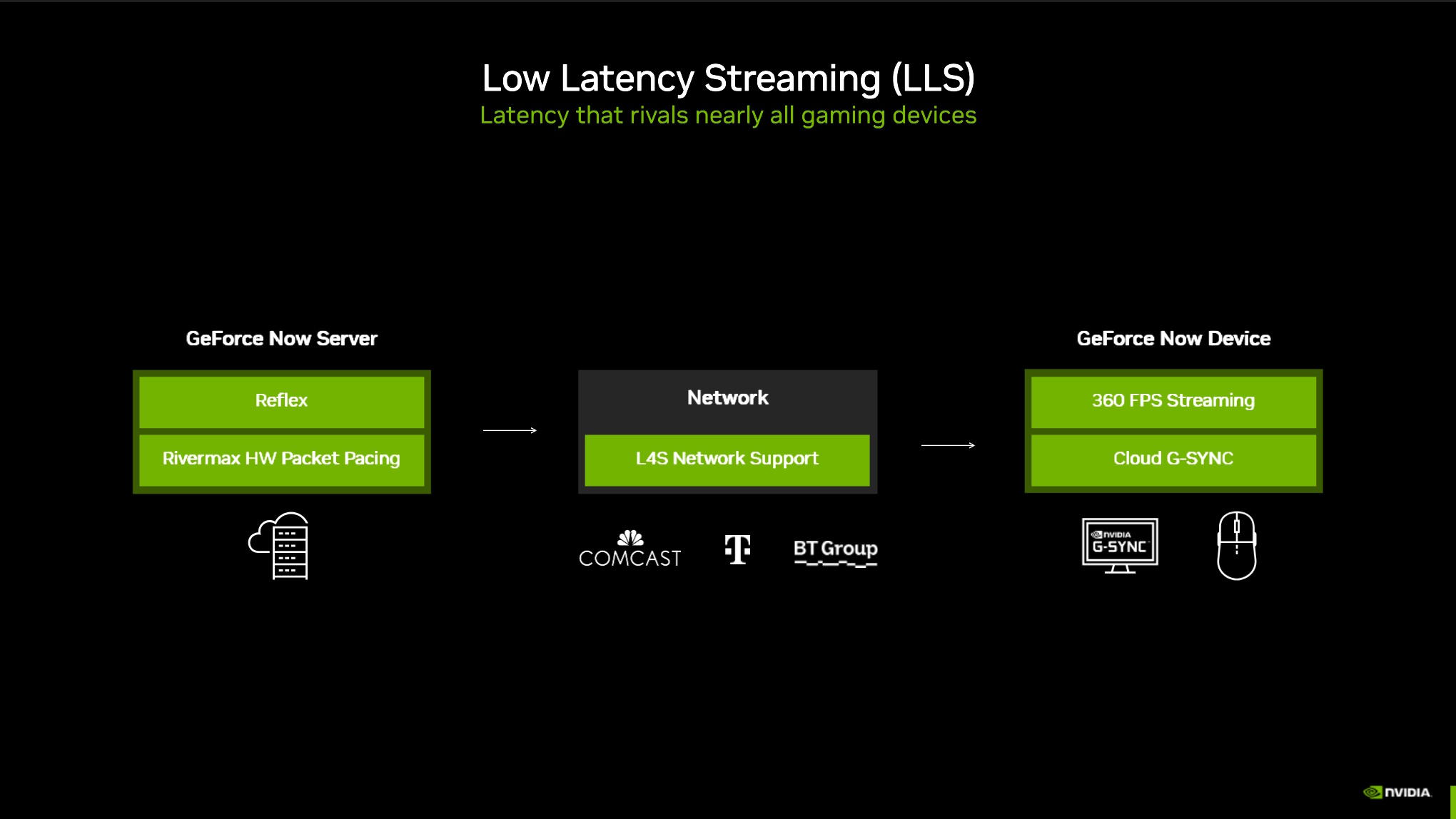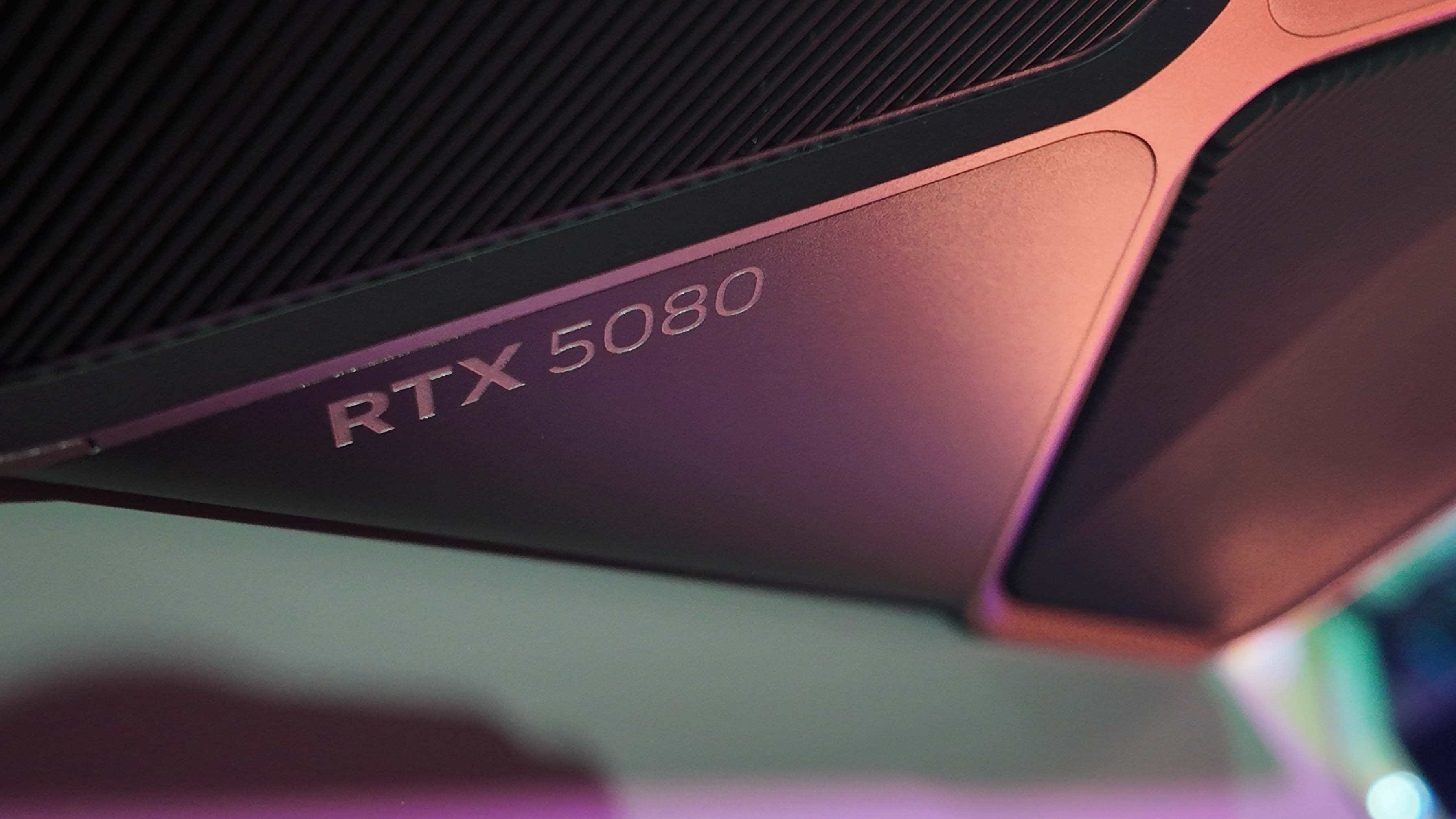
Keep up to date with the most important stories and the best deals, as picked by the PC Gamer team.
You are now subscribed
Your newsletter sign-up was successful
Want to add more newsletters?

Every Friday
GamesRadar+
Your weekly update on everything you could ever want to know about the games you already love, games we know you're going to love in the near future, and tales from the communities that surround them.

Every Thursday
GTA 6 O'clock
Our special GTA 6 newsletter, with breaking news, insider info, and rumor analysis from the award-winning GTA 6 O'clock experts.

Every Friday
Knowledge
From the creators of Edge: A weekly videogame industry newsletter with analysis from expert writers, guidance from professionals, and insight into what's on the horizon.

Every Thursday
The Setup
Hardware nerds unite, sign up to our free tech newsletter for a weekly digest of the hottest new tech, the latest gadgets on the test bench, and much more.

Every Wednesday
Switch 2 Spotlight
Sign up to our new Switch 2 newsletter, where we bring you the latest talking points on Nintendo's new console each week, bring you up to date on the news, and recommend what games to play.

Every Saturday
The Watchlist
Subscribe for a weekly digest of the movie and TV news that matters, direct to your inbox. From first-look trailers, interviews, reviews and explainers, we've got you covered.

Once a month
SFX
Get sneak previews, exclusive competitions and details of special events each month!
Nvidia has just announced what it's calling the "biggest launch in GeForce Now RTX history". The main upgrade for this is that on the Ultimate subscription you'll be able to get Blackwell hardware RTX 5080-level performance.
The eagle-eyed and bat-eared among you might have already heard about Nvidia testing Blackwell hardware on some GeForce Now servers, but that wasn't with an RTX 5080-level GPU. Regardless, it's all official now: High-end RTX 50-series performance with 3x the TFLOPS of the PS5 Pro will be available on Nvidia's game streaming service. It will only be available for some games to begin with, but Nvidia says "additional RTX 5080-enabled games will roll out weekly."
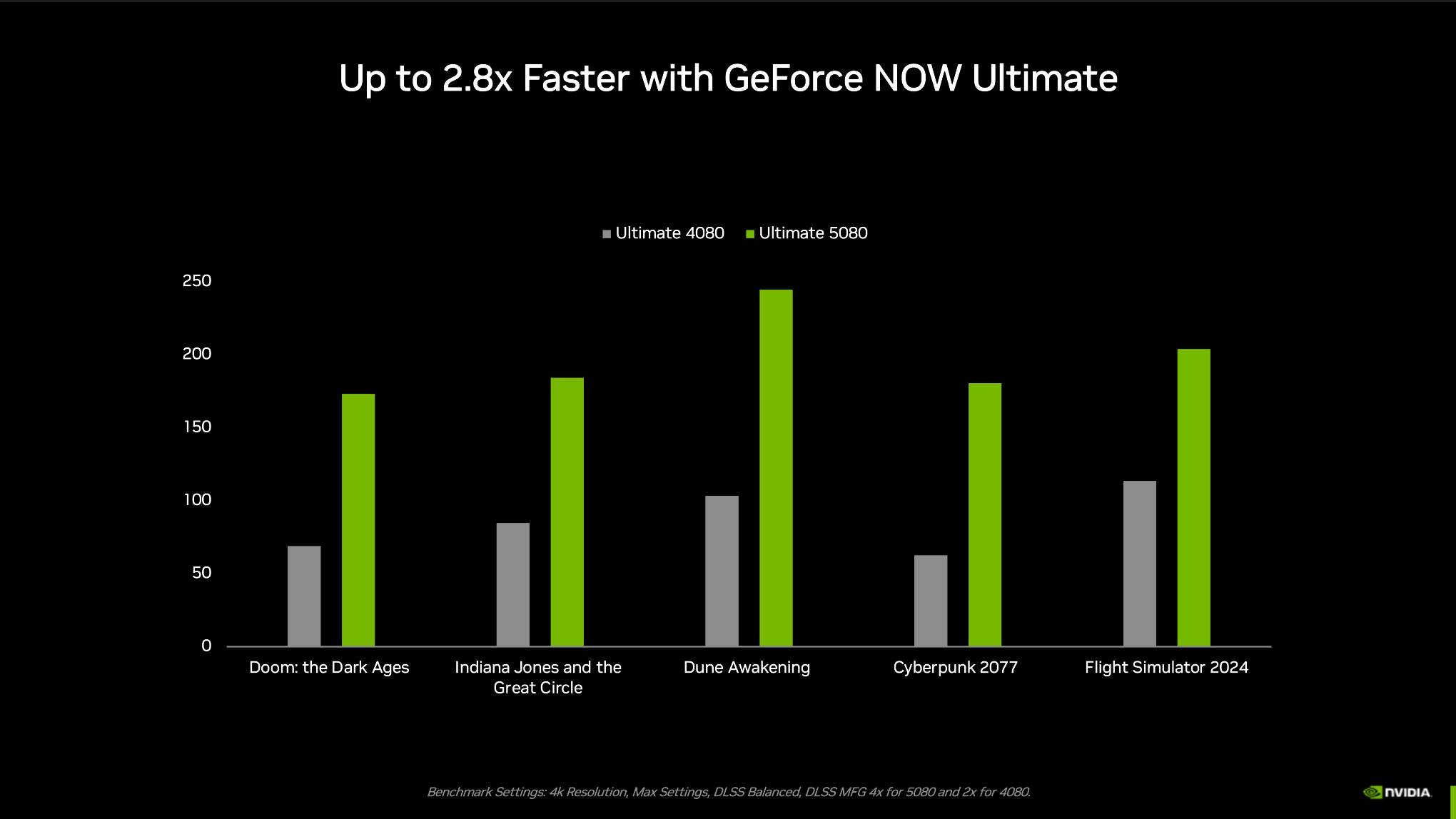
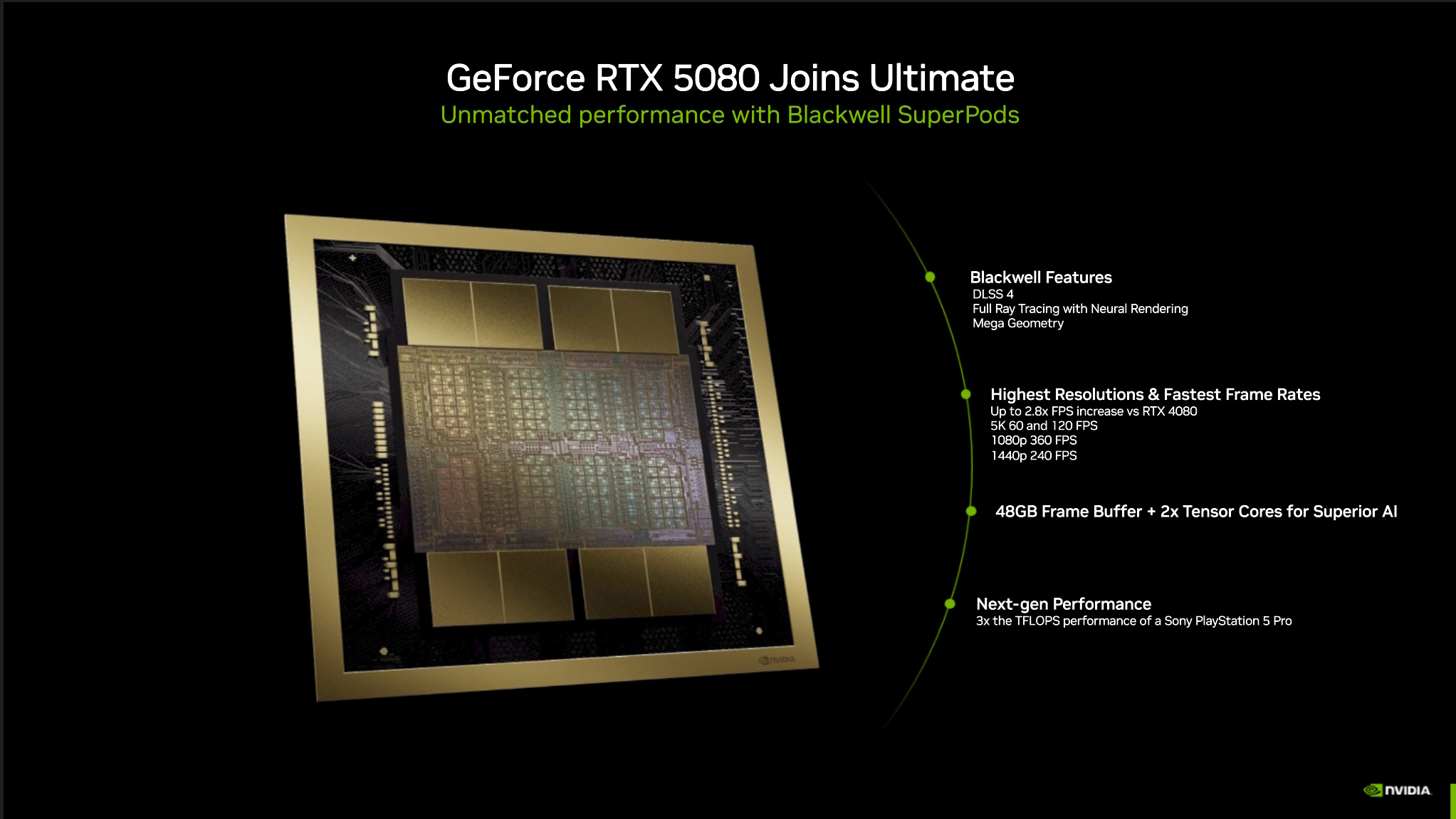
The second-biggest piece of news here is that this upgrade will come at no extra cost. GeForce Now Ultimate is remaining at its current price of $19.99 / £19.99 per month (or a little cheaper if you buy those months in bulk). This is definitely welcome news, especially given the recent 100-hour limit to game time might have made one assume Nvidia would be trying to maximise money.
There is a money-making extra that has been announced, though. This comes off the back of a new feature that's also been announced, called Install-to-Play, which should double the Geforce Now library. Essentially, if a game dev checks the box to allow it, the game will be available to quickly download and install on GeForce Now just as it would be on your local computer. This means you can access games that haven't been properly put onto the GeForce Now cloud yet by Nvidia for instant play.
The catch is that you have to install this game each time you boot up your GeForce Now session, and Premium members get just 100 GB of single-session storage. All of this is included in the subscription, though if you want persistent storage so you don't have to reinstall each time you boot up, you can pay extra for that. It'll be $2.99 for 200 GB, $4.99 for 500 GB, or $7.99 for 1 TB.
Nvidia seems to be leaning hard into the whole 'making it like your local PC' thing—in fact, the company said this explicitly: "We're trying to make GeForce Now feel like a local gaming PC."
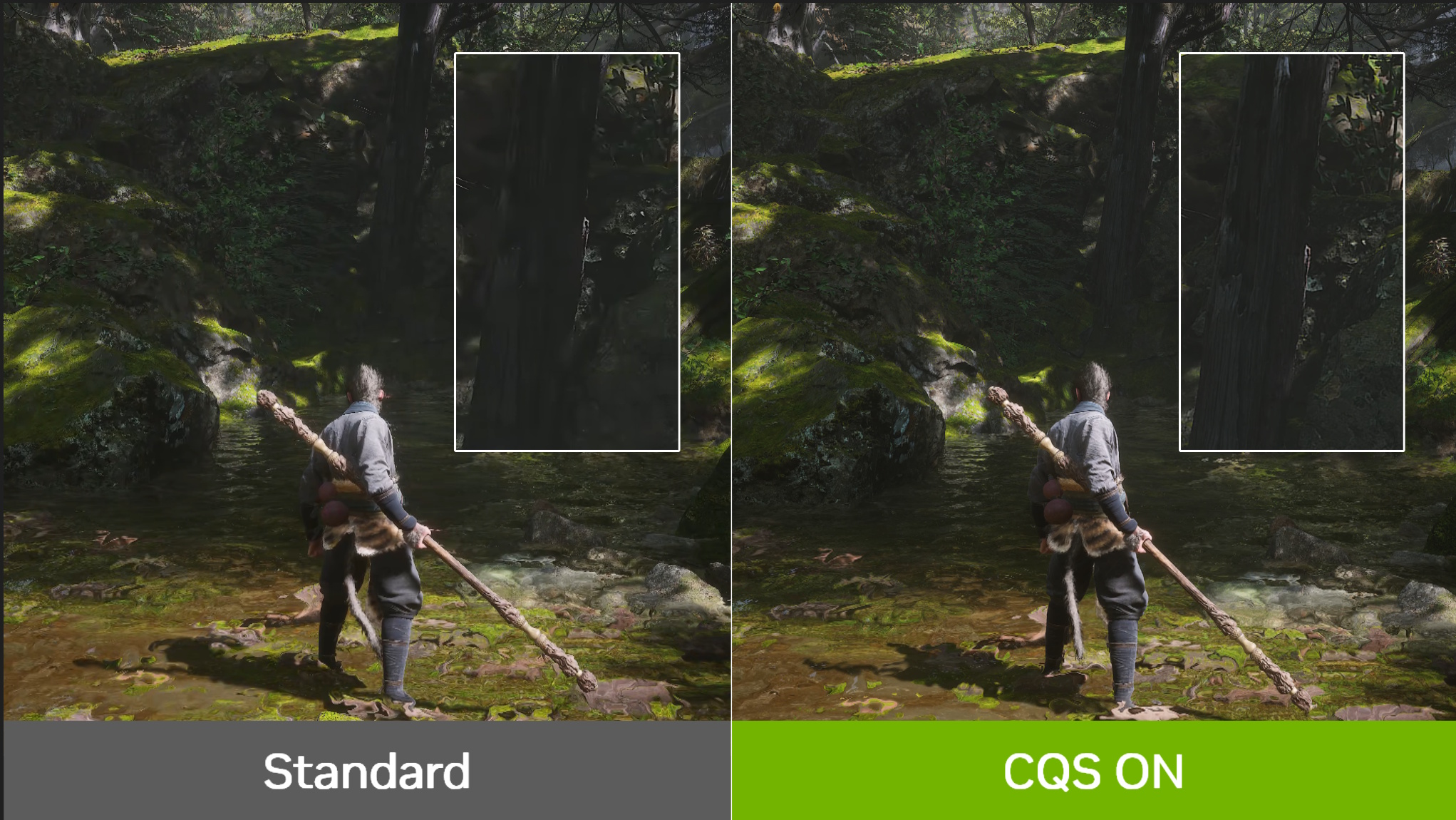
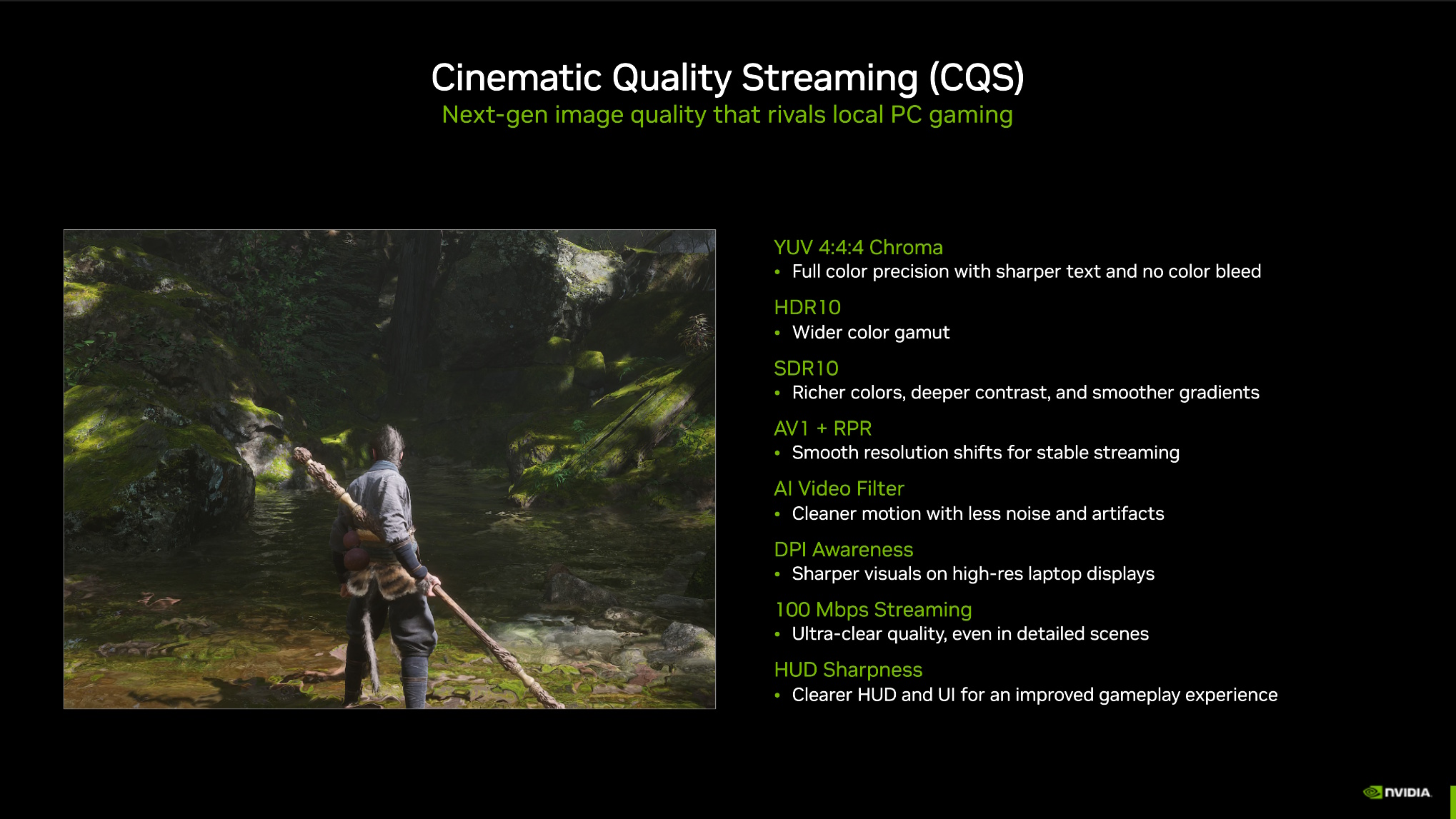
In addition to RTX 5080 performance and Install-to-Play, GeForce Now should also be getting some better visuals with "next-gen image quality that rivals local PC gaming" in a new Cinematic Quality Streaming (CQS) mode. That's thanks to a range of things such as YUV 4:4:4 Chroma subsampling, HDR10 and SDR10, AI video filter, and so on (see the slide above for full details). There's also support for high refresh rates—up to 120 fps at 5K, 240 fps at 1440p, and 360 fps at 1080p—plus new LG TV and monitor support.
Keep up to date with the most important stories and the best deals, as picked by the PC Gamer team.
An obvious bottleneck to all of this can be one's internet connection, and while speeds are getting faster by the year, there's still a way to go to get things perfect. On this front, Nvidia says it's working towards low latency streaming (LLS) by working with Comcast, T-Mobile, and BT on L4S (low latency/low loss) network support. Eventually, Nvidia says, you'll be able to check whether this is currently enabled or disabled on the network line you're connecting over.
Nvidia claims just 30 ms of total system latency playing Overwatch 2 in 360 Hz mode—presumably at 1080p—though we'll have to check it out ourselves to see how likely those low latency results are in practice.
There have been a couple of other additions to GeForce Now—racing wheels, Steam Deck, and Legion Go S support—but the main thrust is the improved quality, with a focus on making the game streaming service more like playing on your local PC. That means higher frame rates, visual fidelity, and low latency. Hopefully, server capacity ramps up quickly, along with more games getting support for the RTX 5080 mode.
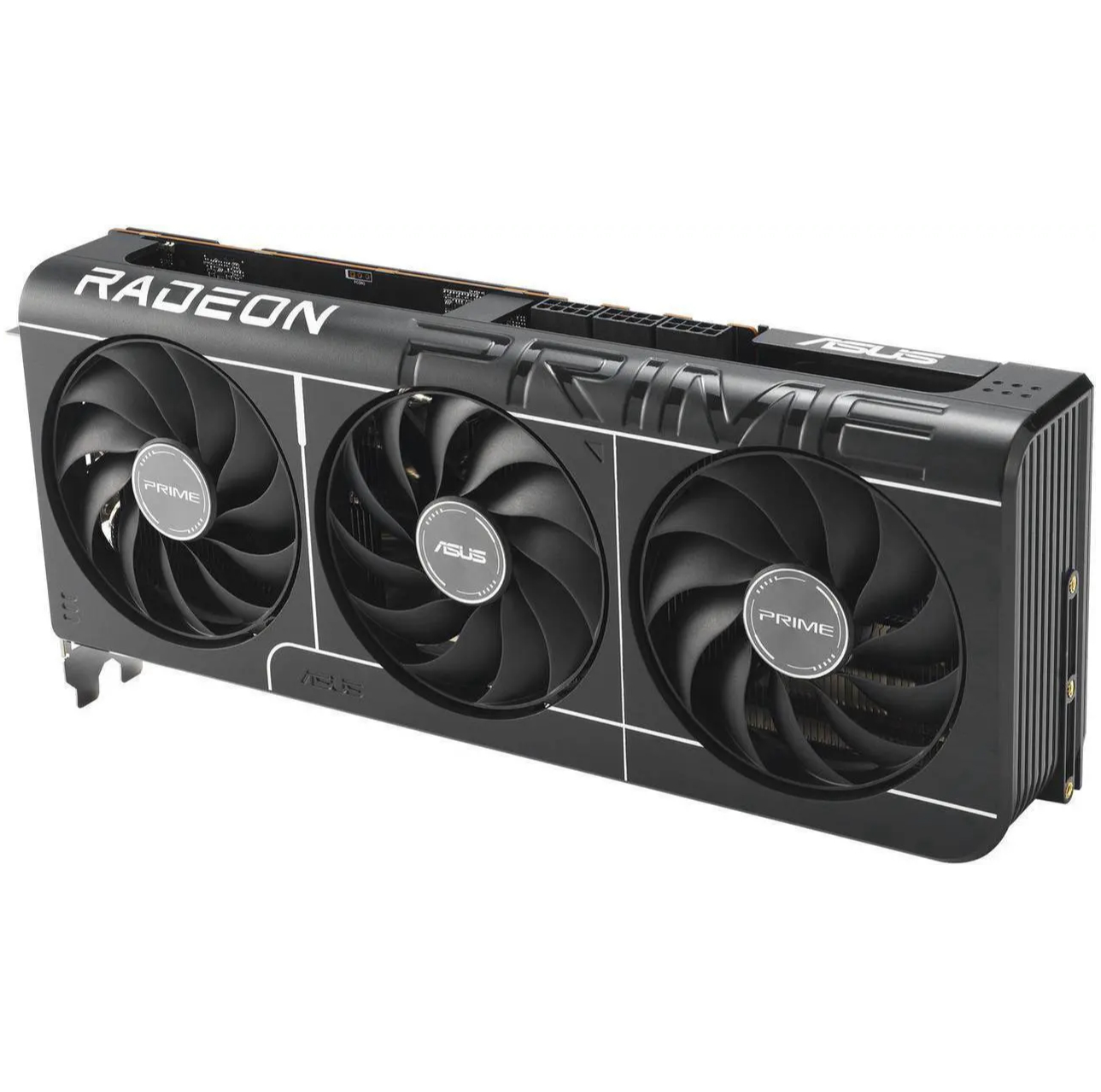
1. Best overall: AMD Radeon RX 9070
2. Best value: AMD Radeon RX 9060 XT 16 GB
3. Best budget: Intel Arc B570
4. Best mid-range: Nvidia GeForce RTX 5070 Ti
5. Best high-end: Nvidia GeForce RTX 5090

Jacob got his hands on a gaming PC for the first time when he was about 12 years old. He swiftly realised the local PC repair store had ripped him off with his build and vowed never to let another soul build his rig again. With this vow, Jacob the hardware junkie was born. Since then, Jacob's led a double-life as part-hardware geek, part-philosophy nerd, first working as a Hardware Writer for PCGamesN in 2020, then working towards a PhD in Philosophy for a few years while freelancing on the side for sites such as TechRadar, Pocket-lint, and yours truly, PC Gamer. Eventually, he gave up the ruthless mercenary life to join the world's #1 PC Gaming site full-time. It's definitely not an ego thing, he assures us.
You must confirm your public display name before commenting
Please logout and then login again, you will then be prompted to enter your display name.
